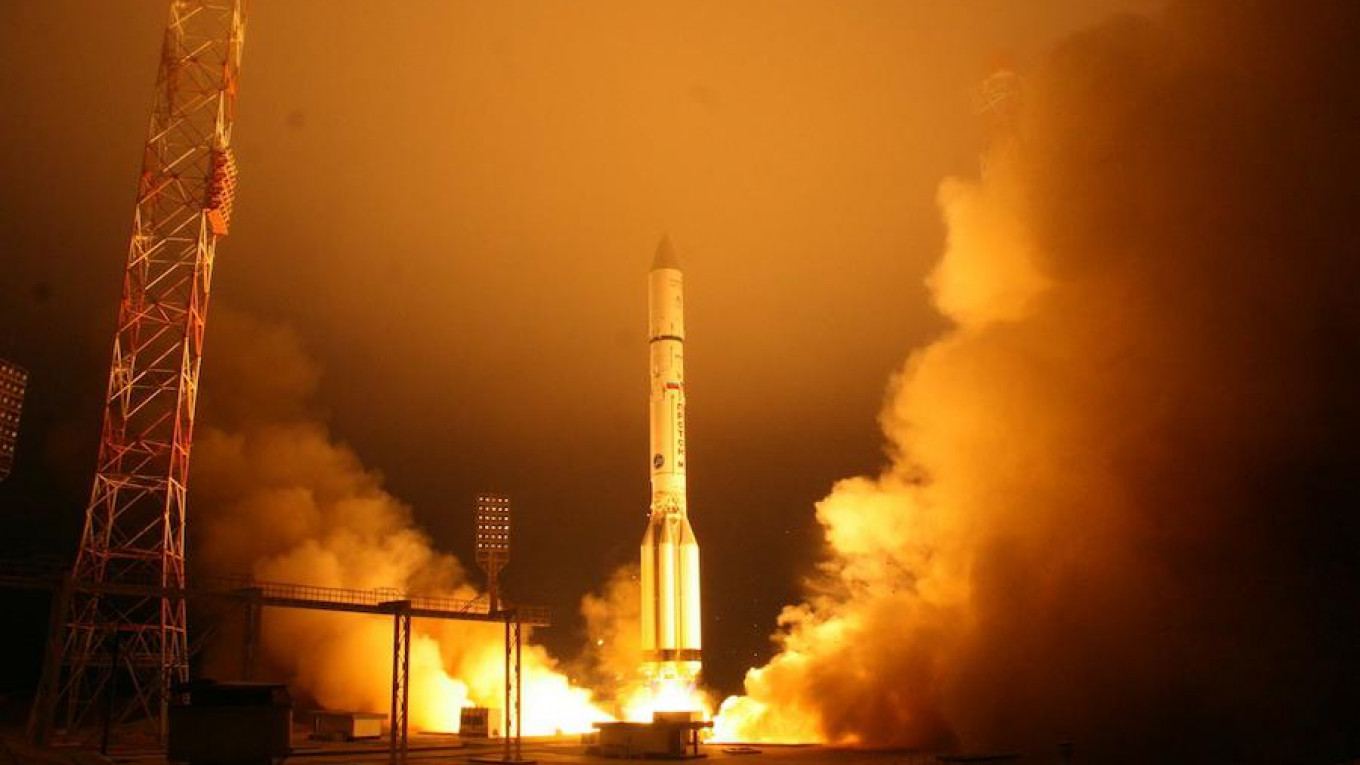Russia has fallen behind the United States and China as the world's leading launcher of space rockets. Russia will finish 2016 with just 18 launches, according to open source data, compared to China's 19 and America's 20 launches. It is the first time Russia has ever trailed the Chinese in annual launches.
Alexander Ivanov, deputy chief of Russia's Roscosmos space agency, said on Nov. 29 that the launch rate has decreased because Moscow's space strategy has changed. Currently, it's top priority is reviving existing and aging satellite groupings.
But there are other reasons Russia's launch rate may be falling behind.
Since the late 1960s Russia has been an undisputed leader in annual launch rates – a figure that spoke to
the general health of its space program and aerospace industry. At the peak of the Soviet space program, Russia often launched around 100
rockets a year. Since 1957, Russia has launched over 3,000 rockets – roughly twice as many as the U.S.
Though the Soviets accomplished many important first in space prior to 1967, the United States launched more rockets per year. The U.S.S.R. remained dominant until the 1990s, when the U.S. briefly overtook Russian launches. Post-Soviet Russia gain climbed to the top in the mid-2000s.
Read our in-depth look at Russia's latest attempts to compete with U.S. private space startups: Russia's S7 Takes a Giant Leap Into Space
The rate is again declining with the Russian economy in crisis, space budgets have plummeted. Funding for the next decade of Russian space activity stands at just 1.4 trillion rubles ($21.5 billion), a figure that was only finalized after three rounds of cuts to proposed funding, which began at 3.4 trillion rubles ($52.3 billion). The U.S. space agency, NASA, received a budget of $19.3 billion in 2016 alone.
To make matters worse, Russian rockets are becoming uncharacteristically undependable. Historically reliable vehicles like the Proton rocket have seen a slew of catastrophic and embarrassing launch failures over the past few years. Quality control issues now plague Russian space production lines.
Meanwhile, foreign
competitors like the California-based Space Exploration Technologies
are encroaching on the international satellite launch market that has
propped up the Russian space industry since the 1990s. Overall, both the Russian and the U.S. governments are responsible for fewer and fewer launches as the private sector assumes more of the burden.
Correction: An earlier version of this story incorrectly reported, as Roscosmos did, that 2016 is the first year Russia fell behind the U.S. in launches. In fact, the Soviet Union was initially behind the U.S. from about 1957 to 1967, and briefly again during the late 1990s.
A Message from The Moscow Times:
Dear readers,
We are facing unprecedented challenges. Russia's Prosecutor General's Office has designated The Moscow Times as an "undesirable" organization, criminalizing our work and putting our staff at risk of prosecution. This follows our earlier unjust labeling as a "foreign agent."
These actions are direct attempts to silence independent journalism in Russia. The authorities claim our work "discredits the decisions of the Russian leadership." We see things differently: we strive to provide accurate, unbiased reporting on Russia.
We, the journalists of The Moscow Times, refuse to be silenced. But to continue our work, we need your help.
Your support, no matter how small, makes a world of difference. If you can, please support us monthly starting from just $2. It's quick to set up, and every contribution makes a significant impact.
By supporting The Moscow Times, you're defending open, independent journalism in the face of repression. Thank you for standing with us.
Remind me later.






